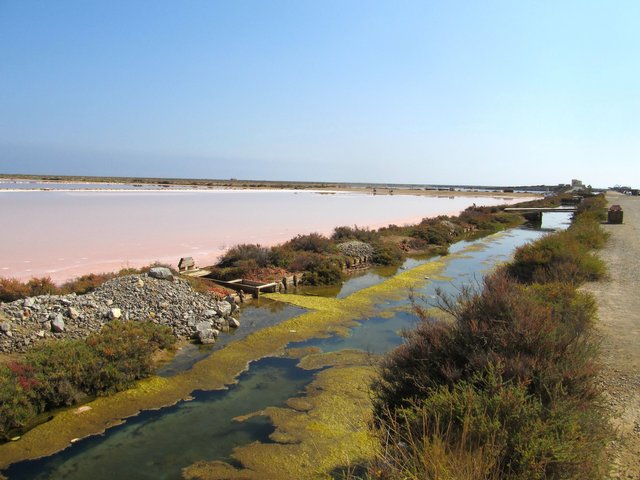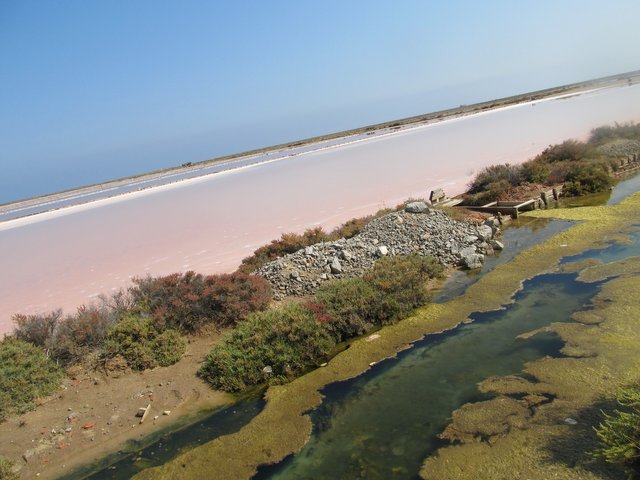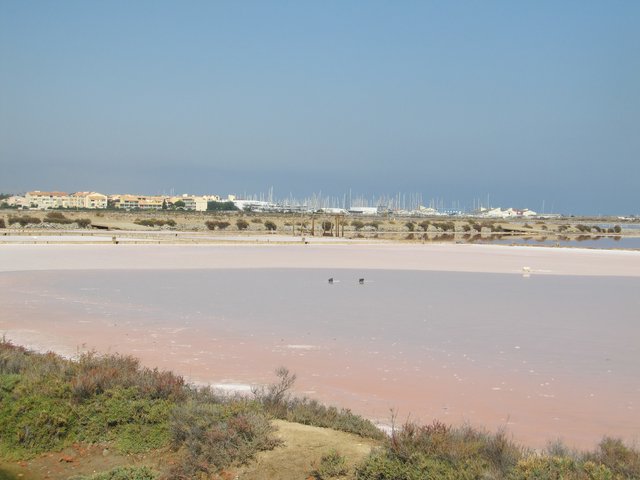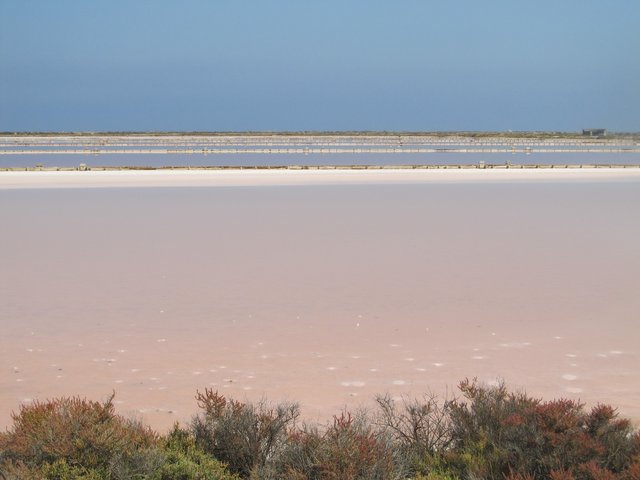Read this post on TravelFeed.io for the best experience

Hey guys, today my post is about the very expensive sea salt... we were looking at the production of Gruissan salt.
Maybe you can remember one of my last posts in which I introduced you to a cathedral - it was also in Gruissan, it was the cathedral of Narbonne! Today, however, it is about the famous salt that is produced there.
The small town of Gruissan in the foothills of La Clape offers superb views of the Mediterranean, water sports, an old port and salt marshes. We have taken a closer look at the famous salt marshes here. Gruissan is also the ideal destination for water rats and sports enthusiasts. The saltwater lake adjacent to the beach of Mateille is entirely dedicated to windsurfing and sailing.
The port of Gruissan has almost 2000 moorings and two marinas on the Mediterranean. The 20th century harbour master's office is an important part of the modern architecture. The port is ideal for an evening stroll, where you can admire the yachts and the sea.
Gruissan also has the salt marshes of the Ayrolle lagoon. Here you can see how salt is extracted. You can also visit the island of Saint-Martin which houses the Salt Museum (which we did not visit (although it is free) because we heard from other holidaymakers that almost everything is explained in French ;). But if you speak French well, you will certainly enjoy it there! The "Salin de l'ile St Martin" is located a little bit outside of Gruissan. Through the shop in the entrance area, where you can buy various salts, wines, caramels and pastries, you enter a small demonstration room where a film of about 8 minutes explains in detail how salt is produced. In the exhibition that follows, the exhibits illustrate the everyday work of the salt workers.
In general, the visit to the salt works was very interesting and above all reassuring. You can have a look at the salt lakes and observe how the salt is removed. A whole ton of salt is always filled into pieces. There is also a restaurant with all kinds of shady terraces. Which surprised me very much: The huge salt mountain, which is piled up next to the basins, which were unmanaged at that time, is as hard as stone. We tried to remove some salt by hand, but it was not possible, not even with stones ;)

In the Gruissan salt flats and the salt marshes of Saint Martin, sea salt is still extracted in a completely natural, traditional way. The system consists of shallow basins and ditches with slides for cutting off or flooding. The seawater then flows at a relatively low speed from basin to basin. The salt concentration increases from basin to basin as the sun (which is located to the south) supports this process through evaporation. The dry winds coming from the Corbières also play their part.
The salt crystals finally collect in the last basins at the bottom. There, the water is drained and the salt is harvested by the salt workers in autumn. This is when the coarse sea salt is obtained. At a very high temperature, very fine crystals are deposited on the surface of the salt pans, which are carefully skimmed off to air dry them. This is then the fleur du sel, the salt flower, a very special delicacy.
The crystallisation of the sea salt is supported by plankton naturally found in the waters of the Mediterranean. The mineral content is highest in autumn, making it particularly valuable for human nutrition. In the salt flats, high concentrations of salt develop, so that algae especially adapted to these conditions feel comfortable. The alga Dunaliella salina, for example, gives the water in the pools with particularly high salt concentrations a strong reddish/pink colouration. You can see this colouring quite well on the pictures. Seaweed is also said to have a good effect on health: it strengthens the immune system, protects against the sun and acts as an antioxidant.
If you are lucky, you may even see flamingos at the shallow saltwater pools, which they use for nesting. The natural extraction of salt certainly does not lead to a chemically pure sodium chloride or a pure mixture of various inorganic salts ...


I hope you enjoyed the post, see you next time :)
Congratulations @katrin-lux! You received the biggest smile and some love from TravelFeed! Keep up the amazing blog. 😍 Your post was also chosen as top pick of the day and is now featured on the TravelFeed.io front page.
Thanks for using TravelFeed!
@elsaenroute (TravelFeed team)
PS: TravelFeed is in social media to reach out more people, follow us on Facebook, Instagram, and Twitter.
Downvoting a post can decrease pending rewards and make it less visible. Common reasons:
Submit